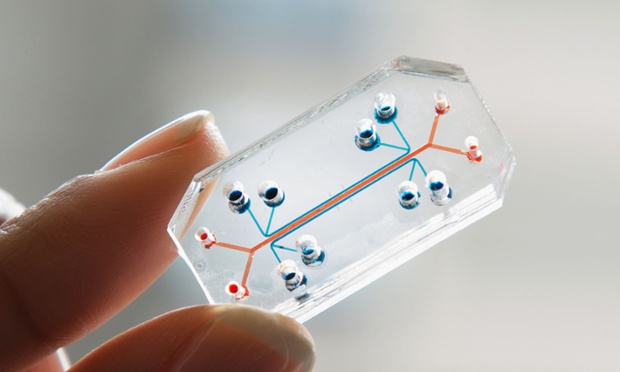 Scientists at Harvard University’s Wyss Institute have created silicon chips that mimic the function of living human organs. Their organs-on-chips technology won the 2015 Design of the Year award from the Design Museum in London. It’s the first time the award has gone to a design from the field of medicine, beating off competition from Google’s self-driving car, a project to clean up plastic from the sea and an advertising campaign to convince people to buy misshapen fruit. The micro-devices work by recreating the tissue interfaces of human organs inside a transparent polymer “chip,” so the behaviors of bacteria, drugs and human white blood cells can be easily monitored through a microscope. These new devices could end animal testing and revolutionize the development of new drugs. Learn more at the Wyss Institute.
Scientists at Harvard University’s Wyss Institute have created silicon chips that mimic the function of living human organs. Their organs-on-chips technology won the 2015 Design of the Year award from the Design Museum in London. It’s the first time the award has gone to a design from the field of medicine, beating off competition from Google’s self-driving car, a project to clean up plastic from the sea and an advertising campaign to convince people to buy misshapen fruit. The micro-devices work by recreating the tissue interfaces of human organs inside a transparent polymer “chip,” so the behaviors of bacteria, drugs and human white blood cells can be easily monitored through a microscope. These new devices could end animal testing and revolutionize the development of new drugs. Learn more at the Wyss Institute.